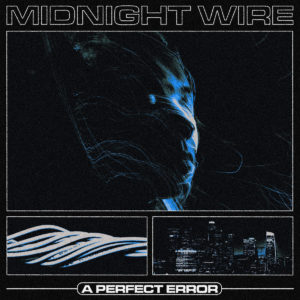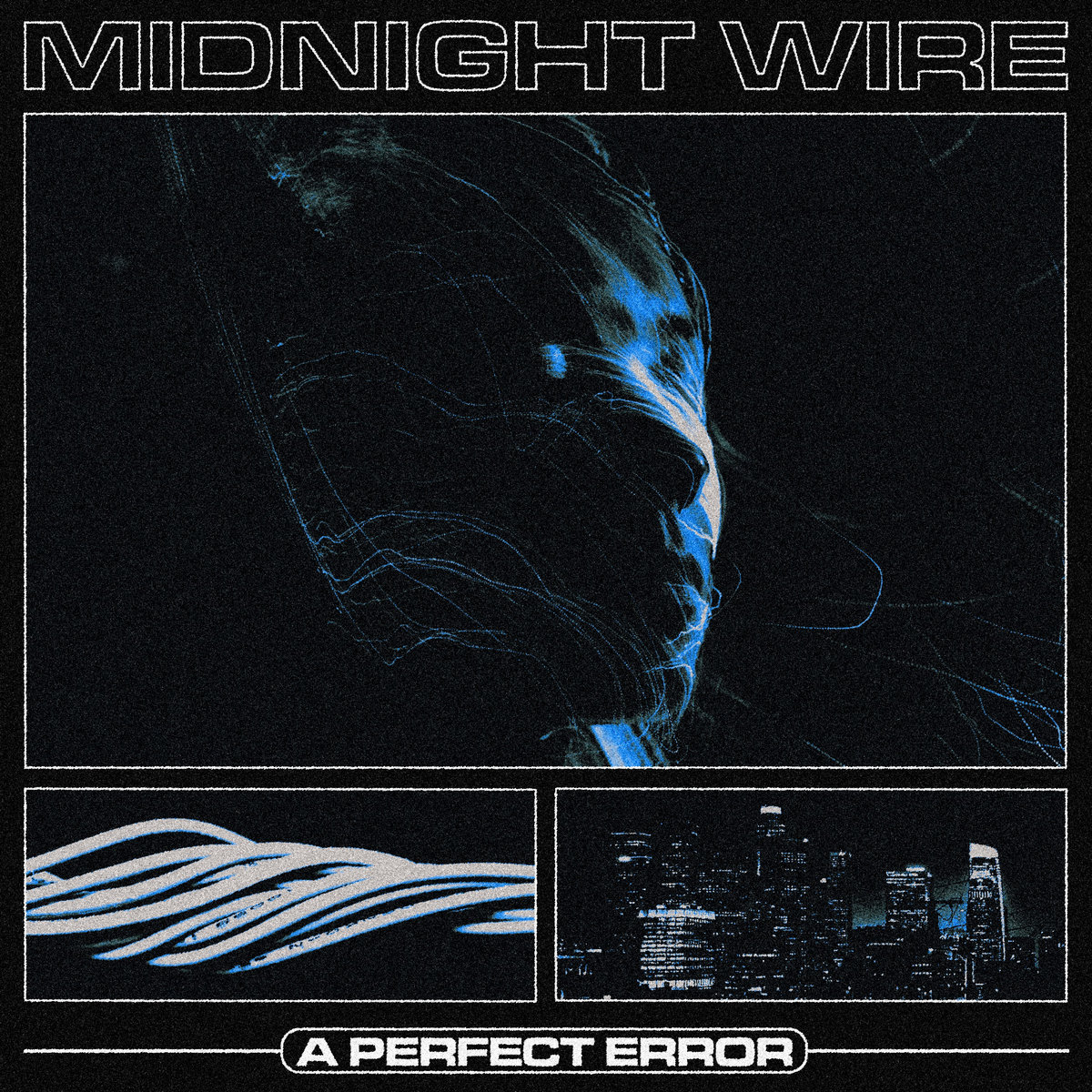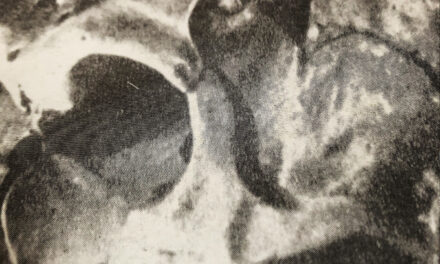
A Perfect Error
Midnight Wire
Re:Mission Entertainment
Cory Gorski’s work has always been anomalous, even when it was at its most familiar. From the outset his most well-known project Volt 9000 used an 16-bit sound FM sound design palette at a time when few other electro-industrial scene acts were using them, with each successive release straying further from easy-touchstones and comparables. That uniqueness in approach has been both Gorski’s blessing and his curse; while it made V9K and his other musical outings uniquely and identifiably his own, it also made the work a much harder sell to those who were already initiated into his pensive, thoughtful bio-punk soundscapes.
It’s with that in mind that a listen of the first LP Midnight Wire from Gorski’s A Perfect Error should be undertaken. Per Gorski, the record has “[the] direct intention to bridge the gap between broody industrial and mainstream pop”, from a songwriting perspective. Lest that statement bring thoughts of club-flavoured industrial pop a la Faderhead or Aesthetic Perfection to mind, the LP is more about exploring pop structures through glitchy and gloomy production, largely on a very low-key bent. It’s an interesting but not entirely successful approach – while Gorski has always had a good ear for a hook, many of the compositions on Midnight Wire lack the energy and drive to sell them.
From a positive standpoint the record has some streamlined cuts that invoke all of Gorski’s most interesting production techniques; “Straightline” uses funky, crushed out bass and clacky percussion sounds arranged in elastic fashion to get its melody over, and “Bad Channels” uses a slow, loping rhythm and sparse piano to create syncopation between it’s lead sound and Gorski’s vocals. On that last element, it should be noted that Cory has largely jetisonned the ohGr-isms that used to inform his delivery, going for a cleaner and more low-key style of delivery well suited to this material. There are a few moments where he mumbles away from the melodies he charges his own voice with carrying, but it’s nice to hear the moments where he stretches himself in terms of emotion and range (“Dead Battery”).
The issue with the record ends up being that its contemplative and occasionally languid pacing feels like it’s at odds with the “pop crossed with industrial” remit. The title track ends up spending a significant a while getting to its chorus, by which time the song is already mired in lengthy noodly verse sections. “Hold On, Hang Up” invokes some saxaphone in promising fashion, but never really ends up coalescing a song around it, despite clearly having some idea of how it wants the interplay between it and the electronics to go. Closer “The Math Between Us” has the makings of something good between it’s use of some orchestral sounds and one of the albums most graspable vocals, but it never changes dynamically enough to make those elements stand apart from the rest of the instrumental. That’s a problem that becomes more clear on consecutive listens, as foundational verses and rhythms don’t vary enough between tracks, causing songs to bleed into one another.
Where enjoyment is best found on Midnight Wire is in hearing the moments where Gorski successfully threads his own literal and figurative voice as a performer with the material, a chorus here, an atonal but song-appropriate synth bridge there. While not a grand statement on how pop and industrial might be more deeply hybridized, it still offers some interesting variations on a familiar producer/performer’s ever-expanding oeuvre.





